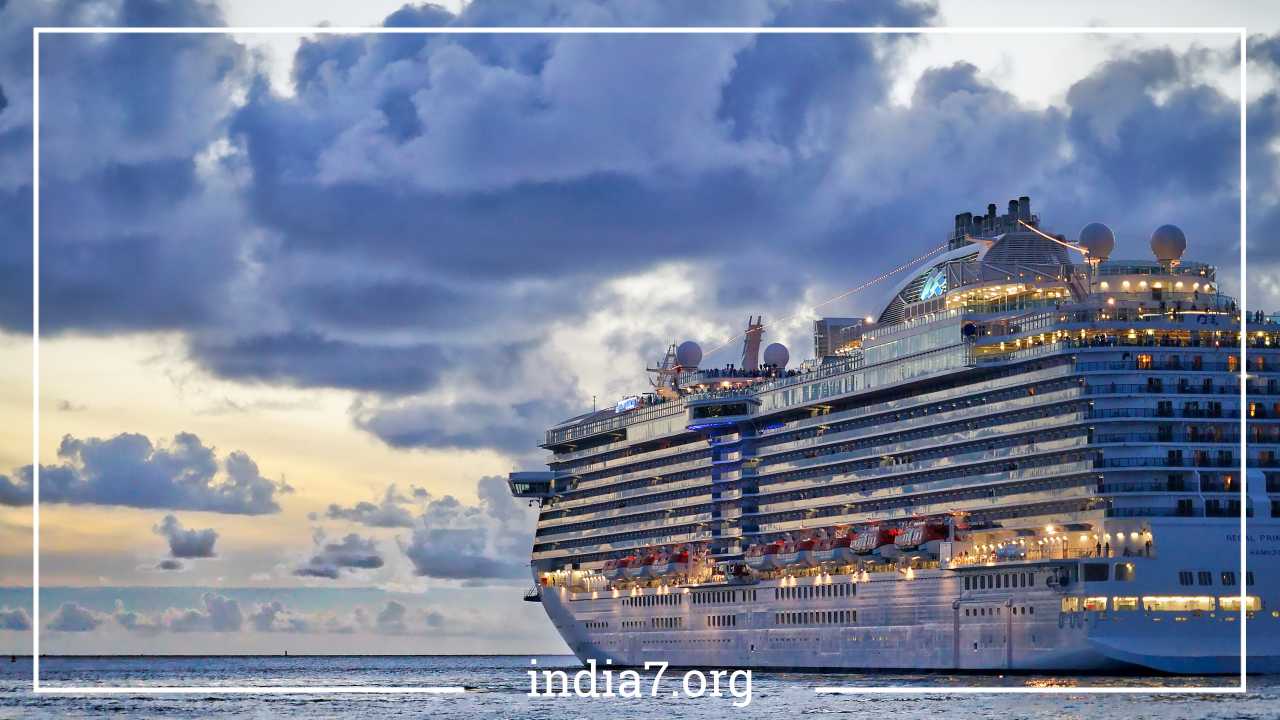Advantages and Disadvantages of All-inclusive Cruise Ships

All-inclusive Cruise Ships
Cruising is a popular vacation choice for many travelers. It offers the allure of exploring multiple destinations while enjoying the comforts of a floating resort.
However, the cost of a cruise can sometimes deter prospective travelers, as additional expenses like food, beverages, and entertainment can quickly accumulate. To address this concern, the concept of all-inclusive cruise ships has gained traction, promising to cover a wide range of expenses within a single upfront fee.
In this comprehensive discussion, we will explore the various advantages and disadvantages of all-inclusive cruise ships, helping you make an informed decision when planning your next cruise vacation.
Advantages of All-Inclusive Cruise Ships
Cost Savings and Predictability
One of the primary advantages of opting for an all-inclusive cruise is the potential for significant cost savings. Most of your essential expenses, including meals, non-alcoholic beverages, and many entertainment options, are included in the package.
This predictability allows for better budgeting, as you know the majority of your expenses are covered in advance. This can be especially appealing to families or travelers on a fixed budget.
Convenience and Peace of Mind
All-inclusive cruise ships offer unparalleled convenience. You can leave your cash and credit cards in your cabin and enjoy your vacation without constantly worrying about payment for every meal or activity.
This convenience factor enhances peace of mind, ensuring that you can focus on relaxation and enjoyment.
Access to Exclusive Perks
Many all-inclusive cruise packages come with exclusive perks and privileges. These may include complimentary access to movie theaters, video arcades, fitness centers, and special events. Such inclusions enhance the overall value of your cruise experience, allowing you to make the most of your time onboard.
Variety of Dining Options
All-inclusive cruises often offer a wide array of dining options, from elegant sit-down restaurants to casual buffets and specialty venues. This variety caters to diverse culinary preferences, ensuring that passengers can indulge in a range of dining experiences without additional charges.
Entertainment Options
While entertainment options may not be entirely unlimited on all-inclusive cruises, many enjoyable activities are typically included. Passengers can partake in dance parties, themed events, live music, and theater shows at no extra cost. This entertainment variety ensures that there is something for everyone.
High-Quality Service
All-inclusive cruise ships often pride themselves on providing high-quality service to their passengers. With gratuities often included in the package price, passengers can experience exceptional service without feeling pressured to tip at every turn.
Disadvantages of All-Inclusive Cruise Ships
Alcohol Costs
While all-inclusive cruise ships cover a wide range of non-alcoholic beverages, alcoholic drinks may not always be included. Passengers who enjoy cocktails, wine, or other alcoholic beverages may incur additional charges, and these costs can add up, particularly if you indulge regularly.
Snacks and Specialty Meals
While sit-down restaurant meals are typically included in all-inclusive packages, snacks and small specialty meals from onboard shops or vending machines may not be covered. Passengers who graze throughout the day or crave specific snacks may find themselves accumulating extra expenses.
Limited Entertainment
While all-inclusive cruise packages offer an array of entertainment options, they may be limited in scope. Some activities, such as gambling in the ship’s casino or attending exclusive events, might require additional payment. This limitation can be disappointing for passengers who desire complete entertainment inclusivity.
Upfront High Cost
The initial cost of booking an all-inclusive cruise may appear substantial, potentially discouraging travelers. However, it’s essential to recognize that this upfront expense is designed to cover the majority of your expenses during the cruise, offering potential savings when compared to paying for each item individually.
Overindulgence and Hidden Costs
A potential disadvantage of all-inclusive cruise ships is the temptation to overindulge, especially with access to unlimited food and some beverages. This overindulgence can lead to hidden costs if passengers find themselves paying for premium dining experiences or specialty beverages not covered by the package.
Variability Among Cruise Lines
Not all all-inclusive cruise packages are created equal. The inclusions and exclusions can vary significantly between cruise lines and even among different ships within the same fleet. It’s crucial to research the specific terms of your chosen cruise to understand what is covered and what isn’t.
Making an Informed Decision
To determine whether an all-inclusive cruise ship is right for you, it’s essential to consider your personal preferences, spending habits, and vacation priorities. Here are some additional factors to take into account:
- Travel Companions: Consider the composition of your travel group. Families with children or larger parties might find all-inclusive packages more appealing due to the convenience and predictability they offer.
- Dining Preferences: Think about your dining preferences. Do you enjoy exploring a variety of culinary experiences, or are you content with traditional onboard dining options?
- Alcohol Consumption: If you consume alcoholic beverages, evaluate the cruise line’s alcohol policy. Some cruise lines offer all-inclusive packages that cover alcoholic drinks, while others charge separately for them.
- Entertainment Priorities: Identify your entertainment priorities. If you value access to a casino or other paid entertainment options, ensure that your chosen cruise line aligns with your preferences.
- Budget and Cost Analysis: Conduct a thorough cost analysis by estimating the total expenses you would incur on a traditional cruise, including food, drinks, and entertainment. Compare this to the upfront cost of an all-inclusive package to determine which option provides better overall value.
- Research Cruise Lines: Research different cruise lines and their all-inclusive offerings. Some cruise lines may cater to specific preferences, such as luxury, family-friendly, or adventure-focused experiences.
- Read Reviews: Read reviews and seek feedback from travelers who have experienced all-inclusive cruises with the cruise line you’re considering. Real-world experiences can provide valuable insights.
Final Thoughts
In conclusion, the decision to book an all-inclusive cruise ship or opt for a traditional cruise experience should be based on careful consideration of your individual preferences, budget, and vacation priorities.
All-inclusive cruise ships offer substantial advantages in terms of cost savings, convenience, and exclusive perks, but they may also have some limitations, particularly in terms of alcohol costs and entertainment options.
To maximize the benefits of an all-inclusive cruise, it’s essential to research the specific offerings of your chosen cruise line, evaluate your spending habits, and weigh the advantages and disadvantages outlined in this discussion.
By doing so, you can make an informed decision that aligns with your travel goals and ensures a memorable cruise vacation.



